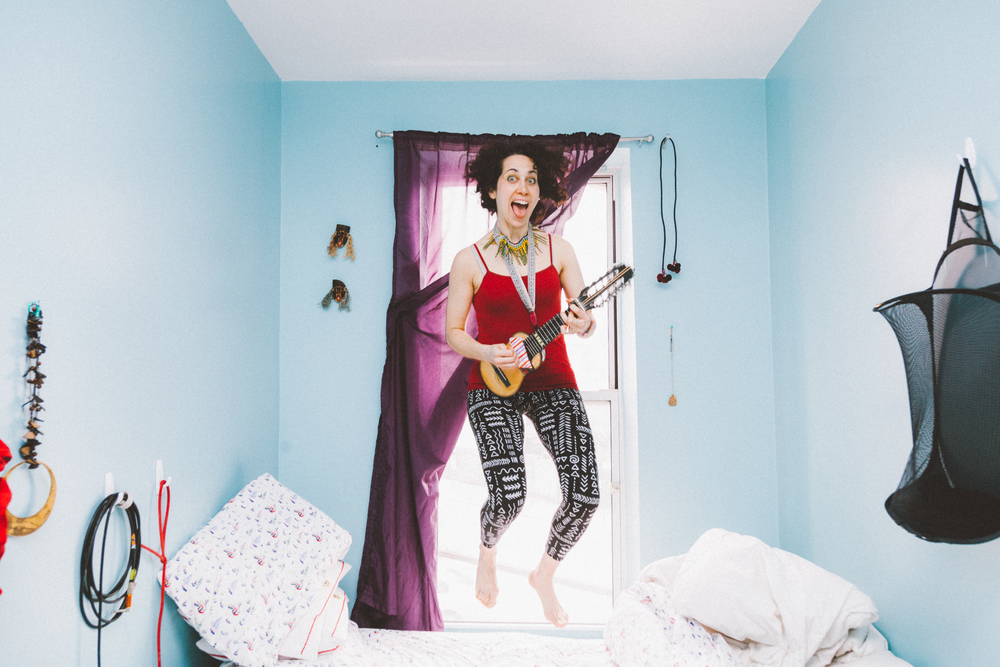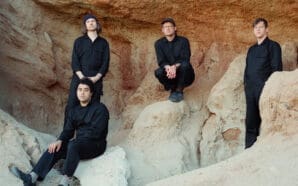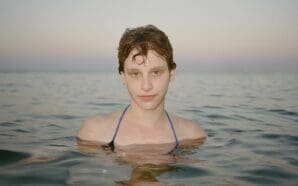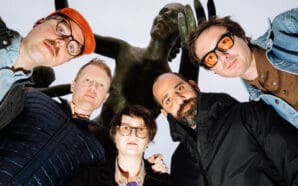Monique Mizrahi, aka Honeybird, may get the award for “most changed” (but not at all in a negative way) artist since the last time I spoke to her… That was a year and a half ago, when she was the leader of Honeybird & the Birdies, a tropical, alt rocking, punky, Rome-based trio. Since then Monique has relocated to Brooklyn (although she does originally hail from the states, but on the opposite coast, in Cali), transformed into a solo artist, and officially come out as bisexual, the first and last of which proved to be the biggest thematic inspirations behind her recently released solo debut, Out Comes Woman, a charango-and-bass-driven funky and punky world music record revolving around themes of sexuality and gender identity that’s not at all dissimilar to a lot of Lou Reed’s later, and criminally underrated, efforts (Think punk-as-fuck spoken word, accompanied by the sonic spices that sample about half of the world’s musical cuisine.)
I recently got a chance to catch up with Monique over the course of an hour-long phone call in which I feel like we got to be cosmic friends (But I’ll leave out the musing and venting I did to her, because, well, that’s not really how these things work…) When I ask Monique about the highlights of her life since our last chat, she’s pretty emphatic to share how much her relocation and realizations have impacted her.
“1, moving to New York. 2, moving to New York. 3, moving to New York. 5, 7, 9, moving to New York [laughs]. I had 14 years of living in Rome and Italy in general. When I moved to Rome, it’s like, ‘See how it goes,’ but it came to be time and it’s been unreal, personally and musically and every other way. And I’ve made a new album, which was gigantoid, and I’ve been playing my music and with other people. And I officially came out kind of as bisexual, which was like transforming self-hate into self-love.”
When I inquire why her move back to America planted her in New York, as opposed to her hometown of LA, Monique tells me it kind of felt like the perfectly positive compromise.
“It’s kind of between LA and Rome, New York. And on a practical level, my brother lives here and my friend from grade school lived here and had a room. It’s the toughest place I’ve ever lived, but I feel like it’s the best place for me, musical and otherwise. There are so many opportunities since I’ve moved here. I’ve been more into world music than indie music… It really stimulates my existence as a musician. Since I’ve moved here I got more into the charango, which I discovered in 2003 in Bolivia.”
Although Out Comes Woman is musically very indebted to Monique’s move to New York, where she tells me she’s a regular hanging in and playing in settings for jazz, Latin music, and classical Persian music, its themes are very much based on her recent personal outing as a bisexual female, with gender identity and gender recognition serving as the basis of the majority of the album’s tracks.
“LGBT culture, it was important for me to come out with an album dealing with that and it was very cathartic, like music is. For me, it dates all the way back to when I was thirteen and had a band called 88 Bi Dead Chickens, which is the name of the 13th track of the album and, I felt I was bisexual, but didn’t want to share it with anybody, and I was kind of also ashamed of it, but for this album it felt like it’s a responsibility as a social good to talk about these things. So many young LGBT youth take their lives because they feel like they’re not understood and they don’t have anyone to look to and when I was there I didn’t feel like I had anyone to look to, even in LA. There was a point when I was dating this woman and she was really out and I wasn’t really and I finally went to the LGBT Center and it was hard, but it made me ultimately so much more comfortable and made me so much more comfortable with my friends and family. And being here in America it’s a little less homophobic than over in Europe. There’s the LGBT center here and, I mean, there’s a subway stop for it [laughs]. You need more of that and for people to see eye-to-eye. But it continues to surprise me; we were in upstate in New York in Buffalo and there were rainbow flags everywhere.”
Monique tells me that her favorite thing about her new music and her newly fully-realized identity is that not only has it allowed her a closer and deeper connection with certain old friends, but also allowed her access to a new group of like-minded in individuals that she is grateful for.
“A friend came out to me as bisexual and he had never really talked about that before, which was such a wonderful thing. If nothing else comes of it, that would’ve made it all worth it. And I’m now sort of part of the New York bisexual community. I marched in my first march and I’ve gotten really good responses from the bisexual community.”
At the moment Monique is back in Europe, doing a string of shows in Italy and France, something that she’s really excited about, considering her evolution since the last time on the continent.
“I’m presenting this album to Europe for the first time. I’m looking forward to going back and presenting bisexuality as an important part of me and my set. Going back to these Catholic countries, I wanted to push the envelope on that a little bit more. This record is more honest than I’ve ever been in the past, not that I was dishonest in the past, but this is about telling it like it is, from my own personal experience.”
Regarding these European dates (in addition to NY dates on September 14th at Videology in Brooklyn and October 1st at The Shrine), Monique tells me that she’s embracing the eclectic and that she’s not exactly sure how things will play out night-to-night… but in a good way: “Expect the unexpected. For these shows there’s a strong samba component and a strong funk component. I’ve been doing shows with a big horns section, but I don’t have a set band at the moment.”
Monique also tells me that in 2016 the US and Europe can expect a lot of Honeybird shows and that the thing she’s most excited for at the moment is to spread her latest sounds and the sentiments behind them in hope of reaching even more people and making more connections: “My plan in 2016 is to do at least one full-on US tour and at least one full-on European tour. I’ve been talking to this guy, and he books like 40-date tours in the US; that would probably be in March or April. It’ll be interesting, but I’m looking forward to using my music to connect to these issues and to open a dialogue.”
And finally, I inquire as to what kind of setting we might expect to see a Honeybird gig, as it would seem to lend itself well to many styles, from listening rooms to cozy bars or even galleries. Monique tells me that she is actually pretty open as long as the room is conducive to people paying her music some mind and having a space to think.
“I mean, I’d love to play in a place where people want to listen to music and be engaged, and that could be a tiny little place or a big piazza. I like places where one can hear themselves play and that have a decent PA, where the bar is maybe not right next to the stage, where people are focused on the music and not just the drinks, although I want people to be having fun and feel free to have drinks. I like the possibility of being very dynamic and maybe being able to be very soft and very intense at the same time, maybe with a long fade out. I mean, I played in a nursing home the other day and that was actually great [laughs].”








